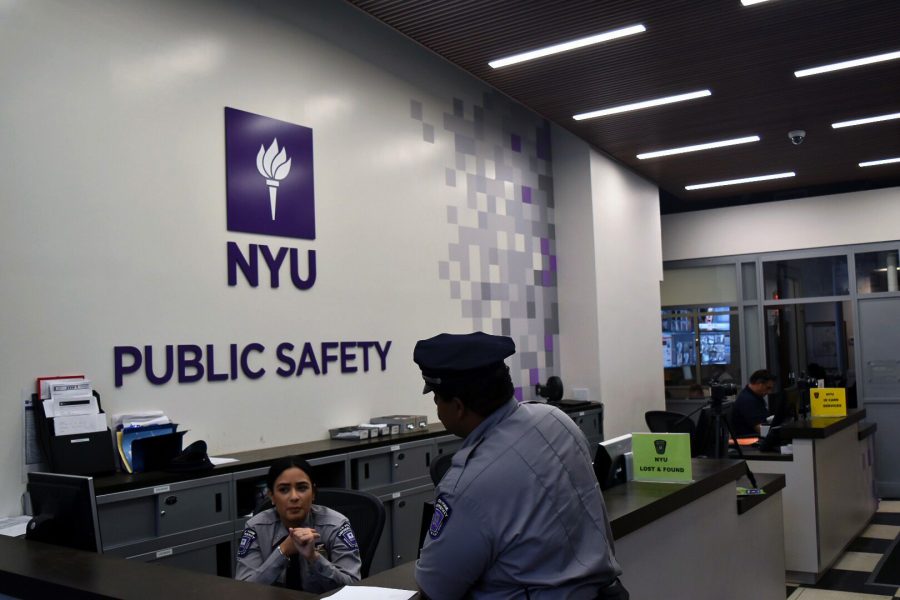Security in and of Cities
October 7, 2016
NYU’s recently released Annual Campus Security and Fire Safety Report shows how the university has upheld a standard to combat crime. There’s a lot of ground to cover: at the Manhattan campus, there are over five million square feet of interior space in addition to the open city streets and scattered residence halls. Tens of thousands of students walk alongside the millions who inhabit New York City.
Gallatin senior Tyler Benjamin said he finds Public Safety very engaged yet amicable. He has worked in many NYU buildings and became familiar with several public safety officers.
“One time I was in Bobst, and the Safe Ride wasn’t coming fast enough,” Benjamin said. “So one of the lieutenants actually took me to my dorm.
Though Greenwich Village is one of the safest New York City neighborhoods, crime is still an issue requiring constant attention. Just this September, there have been several reported instances of major crime in and around the university, including burglary, assault and rape.
LS freshman Tiffany Jung said while there challenges of an open campus, she does not feel that safety is a major concern at NYU.
“Considering the fact that we don’t have a campus, there are strangers everywhere and I see a lot of weird people, and some people catcall,” Jung said. “Other than that, I’ve never felt in danger, and it’s nice to share a campus with the city.”
Away from the flagship campus in New York, the network of global NYU centers have established measures for safety in accordance with the unique features of each city. Security services are available at every location around the clock, and each location maintains connections with the local law enforcement.
The center in Accra, Ghana has a contract with Intercon Security for campus safety, and this system uses security guards instead of police officers to provide 24/7 security. In a city where crime rates are moderate if not high, the NYU security seems effective — there have been no history of reported crime at the Accra campus, and centers across NYU’s global network consistently maintained crime rates lower than their surrounding cities.
This may partly be due to a difference in public safety culture. When Benjamin visited the Abu Dhabi campus during NYU’s Leadership Summit, he found security was much more rigid than in New York.
“You can’t get on campus unless you show ID, or like, if you’re walking around campus and you don’t wear your ID around your neck, they’ll be like, ‘What are you doing here?’” he said. “It was very much in your face.”
The Abu Dhabi campus, though located in one of the safest cities in the world, stations security guards throughout campus and also employs its own Safe Ride program as well as electronic notifications from Public Safety.
NYU’s public safety work abroad has gained notice. NYU Shanghai’s campus even received accolades from the Chinese government for its exemplary campus security and management.
“The command center is located in the academic building, and about 10 security guards are present. There are an additional 70 guards throughout the campus,” said Shanghai Public Safety Officer Wenyuan Miao. “We don’t usually see serious crime.”
Email Alice Li at [email protected]


























































































































































